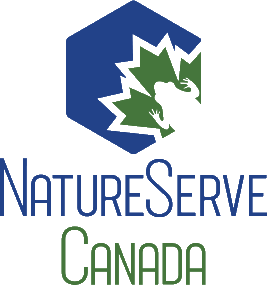https://www.inaturalist.org/observations/185072405
The Common American Stinging Nettle (Urtica dioica). “Common”, a word with a tremendously negative connotation throughout my life, as in Britain, calling someone “common” is a horrible insult. As I learn more about this plant, those negative feelings don’t wane. While the word isn’t a slight to its poshness or lack thereof like it would be if used as an insult in Britain, this common hemp nettle deserves a negative connotation.
Known widely as “stinging nettle” owing to it’s ability to puncture flesh, this plant was in the throes of a slow death when I came across it on a sunny early fall day, but reading up on this plant considered a noxious weed in Alaska, I learned it will come back year after year as it spreads both by seed, and by rhizome fragments being moved from place to place through soil disturbances like plowing or ditch cleaning (Splitlip hempnettle). With each plant creating hundreds of seeds, it’s no wonder this plant is considered a noxious weed in Alaska.
A federal noxious weed is one considered by the United States Secretary of Agriculture as requiring regulatory action to prevent their introduction in spread in the United States (Federal Noxious Weeds of Significance to Alaska). Learning this, I can’t help but call to mind the reading I’ve been doing recently on the topic of Native Alaskan culture and tradition being criminalized by the United States government.
Unsurprisingly, this plant that is commonly regarded as a blight to an otherwise beautiful garden, Native Alaskans used to its fullest potential. Known partly for its medicinal qualities, treating tuberculosis, pleurisy, infections, hemorrhaging, and cancer, Native Alaskans made tea from the leaves and roots and successfully treated these serious medical conditions (Nettle; Stinging Nettle).
Works Cited
Federal Noxious Weeds of Significance to Alaska.: "Federal Noxious Weeds of Significance to Alaska." Noxious Weeds of Alaska, 28 Sept. 2023, noxiousweeds.open.uaf.edu/module-1-introduction/. Accessed 28 Sept. 2023.
Nettle; Stinging Nettle.: "Nettle; Stinging Nettle." Alutiiq Museum, 28 Sept. 2023, alutiiqmuseum.org/medicinal-plants/nettle-stinging-nettle. Accessed 28 Sept. 2023.
Splitlip hempnettle: "Splitlip Hempnettle." Alaska Center for Conservation Science, 28 Sept. 2023, accs.uaa.alaska.edu/wp-content/uploads/Galeopsis_bifida_BIO_GABI3.pdf. Accessed 28 Sept. 2023.






Comments
Hi Sam- The Stinging Nettle does look like it lives up to its name, very painful. That’s interesting that the United States Department of Agriculture actually has a registry of weeds that require regulatory actions to keep them out of the country. It looks like it is mostly found in the southeast and coastal areas so I am assuming it must exist in Homer. It doesn’t surprise me that the Alaskan Natives used it in so many ways. I makes me wonder how they figure out these wide varieties of usages without modern day science to help them. Trials and tribulations or perhaps some sort of “ingredient” the plant has?
Thanks for a wonderful Journal post, Sam! I learned a lot from your write-up.
A quick note about MLA: I notice you are creating entries with the title of articles or web pages you used listed twice. You first include it without quotation marks, and then you include it after a colon with quotation marks. You'll find that our website (https://owl.purdue.edu/owl/research_and_citation/mla_style/mla_formatting_and_style_guide/mla_works_cited_electronic_sources.html) has you start entries with the article or web page in quotes, so you can remove that first part to each of your entries. You'd also then want to make sure you put the web page or article titles in quotation marks within your parenthetical citation in the body of your writing.
Best,
Professor Brooke
Add a Comment